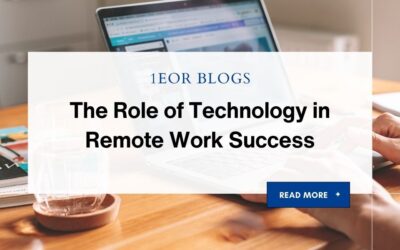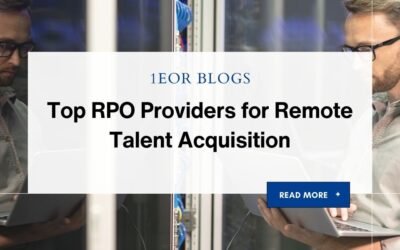In today’s competitive job market, enhancing the employee experience has become a critical focus for organizations aiming to attract and retain top talent. One effective way to achieve this is through the partnership with an Employer of Record (EOR). An EOR acts as a third-party organization that manages various employment responsibilities, allowing companies to focus on their core business functions while ensuring that their employees receive a seamless and enriching experience. This article explores five key ways an EOR can significantly improve your employee experience, from streamlined onboarding processes to enhanced benefits and beyond.
Streamlined Onboarding Processes
The onboarding process is the first significant interaction new employees have with a company, and it sets the tone for their entire employment journey. A smooth onboarding experience is crucial for fostering trust and engagement from the outset. An EOR simplifies this process by handling all the necessary paperwork, compliance requirements, and legal obligations associated with hiring new employees. This allows new hires to focus on integrating into the team and understanding their roles without the burden of administrative tasks.
With an EOR, the onboarding process can be standardized across different regions, ensuring that all employees, regardless of their location, receive a consistent and high-quality experience. For instance, EORs often provide tailored onboarding workflows that include essential training sessions, introductions to team members, and access to necessary tools and resources. This structured approach not only accelerates the integration of new hires but also enhances their overall satisfaction and reduces turnover rates. Research indicates that employees who undergo a well-organized onboarding process are significantly more likely to remain with the company long-term, making this a vital aspect of employee experience management.
Flexible and Diverse Work Environments
In an era where remote work and flexible arrangements are increasingly common, an EOR can facilitate diverse work environments that cater to the varying needs of employees. By managing the complexities of international employment laws and regulations, EORs enable companies to hire talent from different geographical locations without the need to establish local entities. This flexibility not only broadens the talent pool but also allows organizations to create a more inclusive workplace that respects cultural differences and individual preferences.
Moreover, EORs often provide resources and support that help companies implement flexible work policies, such as remote work options, flexible hours, and hybrid work models. This adaptability is essential for meeting the evolving expectations of employees who prioritize work-life balance and seek employers that understand the importance of personal well-being. By fostering a diverse and flexible work environment, EORs contribute to higher employee morale, increased productivity, and a stronger sense of belonging among team members, ultimately enhancing the overall employee experience.
Timely and Accurate Payroll Management
One of the most critical aspects of employee satisfaction is receiving timely and accurate compensation. An EOR takes on the responsibility of managing payroll, ensuring that employees are paid on time and in compliance with local laws. This eliminates the administrative burden from HR teams and reduces the risk of errors that can lead to employee dissatisfaction.
EORs utilize sophisticated payroll systems that are designed to handle various payment methods, tax regulations, and currency conversions, making it easier for companies to manage international payroll. This level of efficiency not only ensures that employees receive their salaries promptly but also enhances their trust in the organization. When employees feel secure in their financial compensation, they are more likely to be engaged and motivated in their roles. Additionally, EORs often provide access to benefits such as bonuses and incentives, further enriching the employee experience by recognizing and rewarding performance.
Localized Employee Benefits
Offering competitive benefits is essential for attracting and retaining talent, especially in a global workforce. An EOR can help organizations provide localized employee benefits that cater to the specific needs and preferences of their workforce in different regions. This includes health insurance, retirement plans, paid time off, and other perks that are compliant with local laws and regulations.
By partnering with an EOR, companies can ensure that their employees receive benefits that are not only competitive but also relevant to their cultural and legal contexts. For instance, an EOR can help design benefits packages that address the unique healthcare needs of employees in different countries or provide options for flexible working arrangements that align with local customs. This level of customization demonstrates a company’s commitment to employee well-being and satisfaction, which can significantly enhance the overall employee experience. Employees who feel valued and supported through comprehensive benefits are more likely to remain loyal to their employer and contribute positively to the company culture.
Enhanced Employee Engagement and Retention
Employee engagement is a key driver of productivity and retention, and an EOR plays a vital role in fostering a culture of engagement within the workplace. EORs often provide additional resources and tools that promote employee engagement, such as learning and development programs, performance management systems, and feedback mechanisms. These initiatives empower employees to take charge of their career growth and development, leading to increased job satisfaction.
Furthermore, EORs can facilitate regular check-ins and surveys to gauge employee sentiment and gather feedback on their experiences. This proactive approach allows organizations to identify areas for improvement and make necessary adjustments to enhance the employee experience continually. By creating an environment where employees feel heard and valued, companies can significantly reduce turnover rates and build a more committed workforce. Engaged employees are not only more productive but also act as brand ambassadors, positively influencing the company’s reputation in the job market.
Conclusion
In conclusion, partnering with an Employer of Record offers numerous advantages that can significantly improve the employee experience. From streamlined onboarding processes and flexible work environments to timely payroll management, localized benefits, and enhanced engagement strategies, EORs provide comprehensive solutions that cater to the needs of modern employees. As organizations navigate the complexities of a global workforce, leveraging the expertise of an EOR can lead to a more satisfied, engaged, and productive workforce. Investing in employee experience is not just a trend; it is a strategic imperative that can drive long-term success and foster a positive workplace culture.



